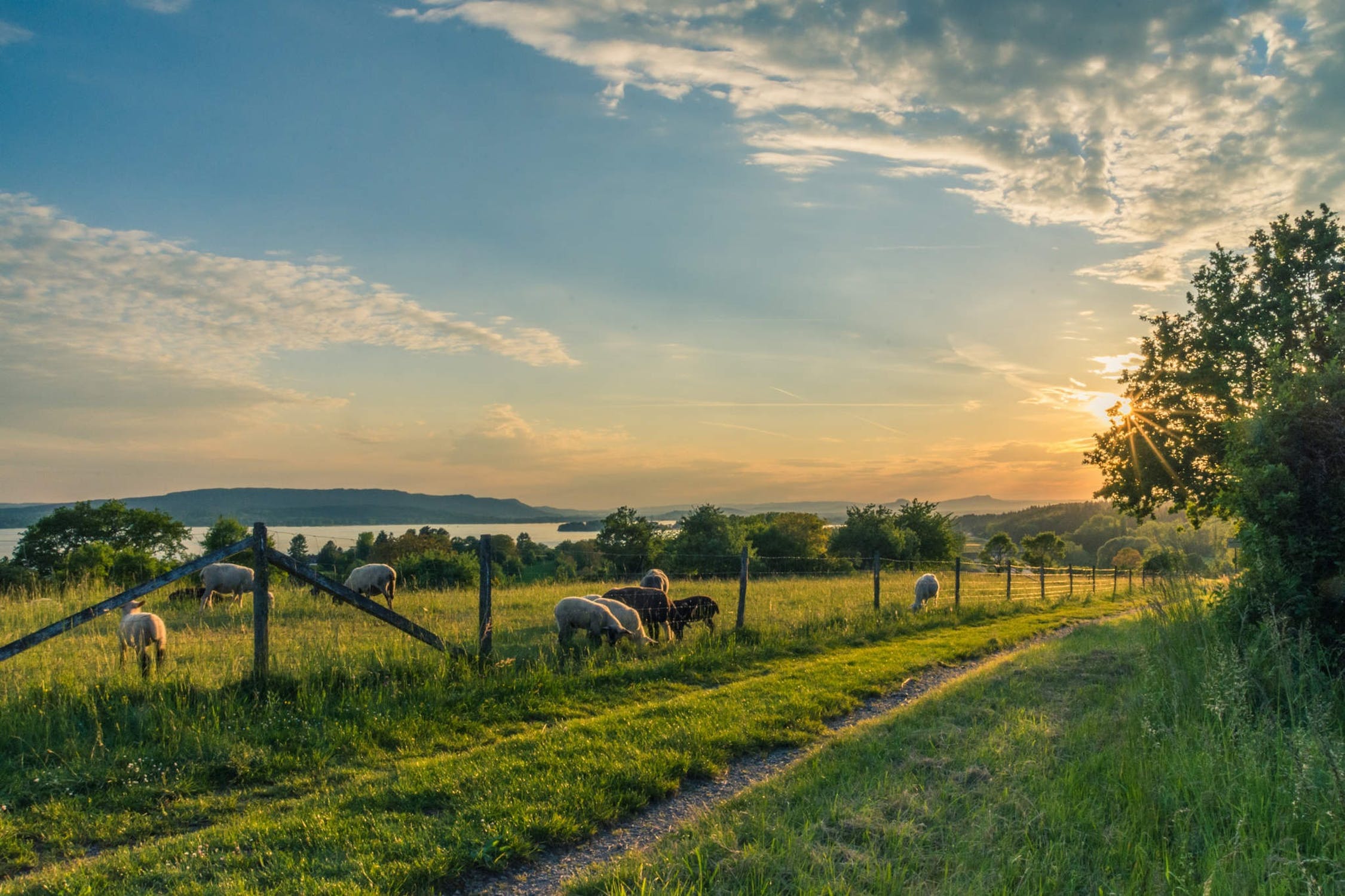How to Make Safety a Priority on Your Farm
/By Emily Folk
Despite the bucolic setting, farms are still industrial settings that pose several safety risks. When working on your farm, always keep a focus on safety. Accidents happen, but you can prevent them by paying close attention to hazards around your farm.
Chemical Safety
Chemicals include everything from natural manure to pesticides. Exposure to chemicals can cause both long-term and immediate effects. If you notice nausea, vomiting, dizziness, diarrhea, skin irritation, chemical burns, headache or breathing problems, get medical attention at once.
Consult the Material Safety Data Sheet, MSDS, for information on safe handling and storage of any chemicals on your farm. Always handle any substances with caution per the MSDS. Keep respirators, face masks, gloves and eye protection readily available for safely handling chemicals on your farm.
Animal Safety
In 2011, 1.4 million farms in the United States had large animals. While it's easy to take these animals for granted, they can transmit zoonotic diseases such as anthrax, brucellosis, tularemia and rabies.
How you avoid exposure to animal-transmitted diseases depends on where your farm is located and what types of animals you work with. Keeping your hands washed after being around animals and regularly cleaning animal pens can help prevent the transmission of many of these diseases. Contact your doctor for more information about specific conditions, and keep your farm animals healthy with regular vet checkups.
Transportation Safety
Transportation safety should be one of your highest priorities. Tractor incidents and vehicle accidents are the top cause of death in farmers. You need to thoroughly assess your equipment and address any problems before use. See if your farm tractors have rollover protective structures (ROPS). If not, have them installed. According to the CDC, this change, coupled with seat belt use, could prevent deaths in tractor overturn accidents.
Machinery Safety
Machinery on a farm is like that used on a construction site. The six million Americans who work in construction have specific equipment maintenance and handling safety rules to follow. Why should it be any different on a farm?
Maintaining mechanical machinery can help prevent accidents. Broken or malfunctioning equipment can result in crashes. Preventative maintenance can spot the signs of a growing problem before a disaster occurs.
Incidents from heavy machinery can cause significant injuries and death. Never misuse equipment or allow untrained people to man machinery. These rules can prevent problems caused by unqualified operators. Keep safety manuals on hand for all the machinery you buy, and reference them regularly to keep safe operation instructions constantly in mind.
Heat Safety
Heat can kill. Even those who claim to feel acclimated to the summer heat can fall prey to heat illnesses. The most at risk are those working outside in high temperatures and humidity, and they must wear protective clothing.
Those new to working out in the heat may need more water and rest breaks than others. Everyone should stop for water every 15 minutes, regardless of thirst. Have a shady area available for workers to take a break from the sun and heat. Heat illnesses may be deadly, but they’re also easily prevented with regular rest and care.
If you notice yourself or anyone else feeling dizzy or sick, get them inside at once. Seek medical attention if the person loses consciousness or has an elevated body temperature.
Creating a Safer Farm
Farms have all the problems of construction sites and manufacturing plants in addition to outdoor work and animals. You need to continuously stay vigilant about safety rules and train everyone on your farm. Make safety a priority, and you'll keep yourself and those who work with you protected from incidents. Remember, prevention can stop accidents before they cause tragedies.
About the author: Emily is a sustainability writer and avid gardener. You can read more of her work on her site, Conservation Folks, where she writes about helping tomorrow’s planet today.
Sources:
https://www.westernstatescat.com/about-us/resources/construction-safety/
https://www.betterhealth.vic.gov.au/health/healthyliving/farm-safety-and-handling-agrichemicals
https://www.cdc.gov/niosh/topics/aginjury/fss/pdfs/FS-8-508.pdf
https://www.osha.gov/dsg/topics/agriculturaloperations/hazards_controls.html






















